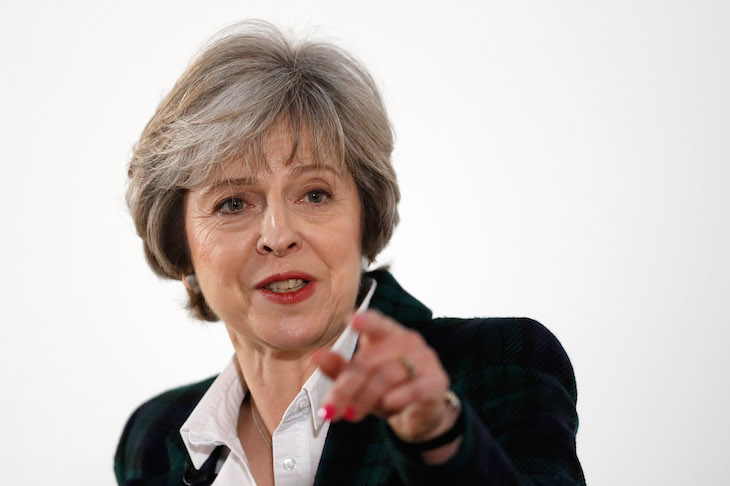Before every Budget, George Osborne would tell his aides to prepare for it as if it were their last. His thinking was that chancellors only have so many opportunities to tilt the country in the direction they want it to go. Osborne’s Budget record was far from perfect, but that mindset did at least mean that he achieved some lasting change.
Philip Hammond is approaching this month’s Budget differently. Unlike Osborne or Gordon Brown, he is not a political strategist, and it shows. The Treasury is treating this month’s Budget like a holding exercise.
To be fair to Hammond, one of the reasons the Treasury is taking such a cautious approach is because of the uncertainty around Brexit. Until it becomes clear whether or not there will be a deal, how can a chancellor be expected to lay out what the economy needs? Hammond believes that if the UK and EU reach an agreement, there will be a deal dividend. The easing of the uncertainty around Britain’s future will lead to an uptick in business investment. Whereas if there is no deal, stimulus will be needed to help avoid a recession.
The next week will be a difficult period for the government. There is no sign yet of a mutually acceptable answer to the issue of the Irish backstop, and one must be found for a withdrawal agreement to be reached. The UK had been trying to leave open the possibility of setting up regulatory checks in the Irish Sea. But the DUP, upon whom May relies for her parliamentary majority, is trying to shut that option down.
Some in government believe that she must call the DUP’s bluff. They argue that the Unionists will never risk putting Jeremy Corbyn, a man who favours a united Ireland and was deeply sympathetic to the IRA, into Downing Street. But I understand that the DUP has privately emphasised to several cabinet ministers that they really would be prepared to vote down the withdrawal agreement and risk a Corbyn government if that prevented new barriers between Great Britain and Northern Ireland.
If the DUP voted against May’s deal, getting it through the Commons would become very difficult. In these circumstances, even if the whips succeeded in reducing the Tory rebellion to 15 or so, which would be an impressive feat of party management, they would still need 25 Labour MPs to back the deal. That would be a stretch. In 1993, John Major defeated the Tory Maastricht rebels by turning the vote on the social chapter into a confidence vote. The risk was that the government would fall if it lost the vote. This shocked the Eurosceptics into line. But the restrictions imposed by the 2011 fixed-term parliament act means that this option is not available to Mrs May. So Jacob Rees-Mogg and co believe they can vote down her deal but still vote to keep the government in place.
These Tory rebels, though, would face an acute dilemma if May, having lost a first vote, responded by announcing she was holding another one. If the Commons again rejected her plan, she would then go to the palace and advise the Queen to call Jeremy Corbyn and ask him to form a government. While this plan would be a high-risk move, it would put the Tory rebels on the spot.
This uncertainty over Brexit will define British politics over the next few months, but the Budget will still be important for several reasons. It is the first fiscal event since the government announced that it intends to spend £20 billion a year more on the National Health Service. Hammond has already said that the country will have to pay a ‘little more tax’ to cover this. The Budget will show where he thinks the burden should fall.
Perhaps the government will reduce pension tax relief among higher-rate taxpayers. This is one of the softer tax targets. May’s decision to announce in her conference speech that fuel duty will be frozen again shows just how politically sensitive the cost of living remains. This means that increases in the taxes that people notice most are politically unpalatable. When Hammond addressed the cabinet on the Budget this week, I understand he made clear that he was sceptical about reports that the public were happy to pay more tax for the health service.
The decision to raise taxes is particularly significant, however, given May’s declaration at Tory conference that austerity is over. No. 10 is quick to point out that this doesn’t mean a spending free-for-all. They emphasise that the same speech committed the government to ensuring that debt falls as a percentage of GDP. But there’s no doubt that the statement has changed the terms of political debate. The pressure to spend more in a slew of areas will only increase. At the start of the cabinet discussion on the Budget this week, ministers were urged not to put in bids for money in the meeting itself.
Next year’s spending review will be hard fought. Ministers will argue that funds are needed to address various political problems before the 2022 election. Defence, the Home Office and Education are all expected to push particularly hard for extra resources. But there is a case to be made that prisons and local government are the two areas most in need of more money.
Another problem that the Tories need to address is the decline in home ownership. May’s pledge to remove the cap on local authority borrowing to build houses will help. But as even those involved in drawing up the policy accept, this move in and of itself won’t give much of a boost to home ownership. The properties built will mostly be for social rent. If home ownership continues to fall, more and more voters will be tempted by anti-system politicians such as Jeremy Corbyn. The Tory party is the party of the property-owning democracy or it is nothing.
It is tempting for the government to put everything else on hold until Brexit day. Certainly, it will dominate the political landscape until the withdrawal agreement is through the House of Commons. But May’s administration also needs to think about the kind of country that they want Britain to be after Brexit. A Britain with revived property ownership will be a country that is far more receptive to the Tory message.
Got something to add? Join the discussion and comment below.
Get 10 issues for just $10
Subscribe to The Spectator Australia today for the next 10 magazine issues, plus full online access, for just $10.
You might disagree with half of it, but you’ll enjoy reading all of it. Try your first month for free, then just $2 a week for the remainder of your first year.














Comments
Don't miss out
Join the conversation with other Spectator Australia readers. Subscribe to leave a comment.
SUBSCRIBEAlready a subscriber? Log in